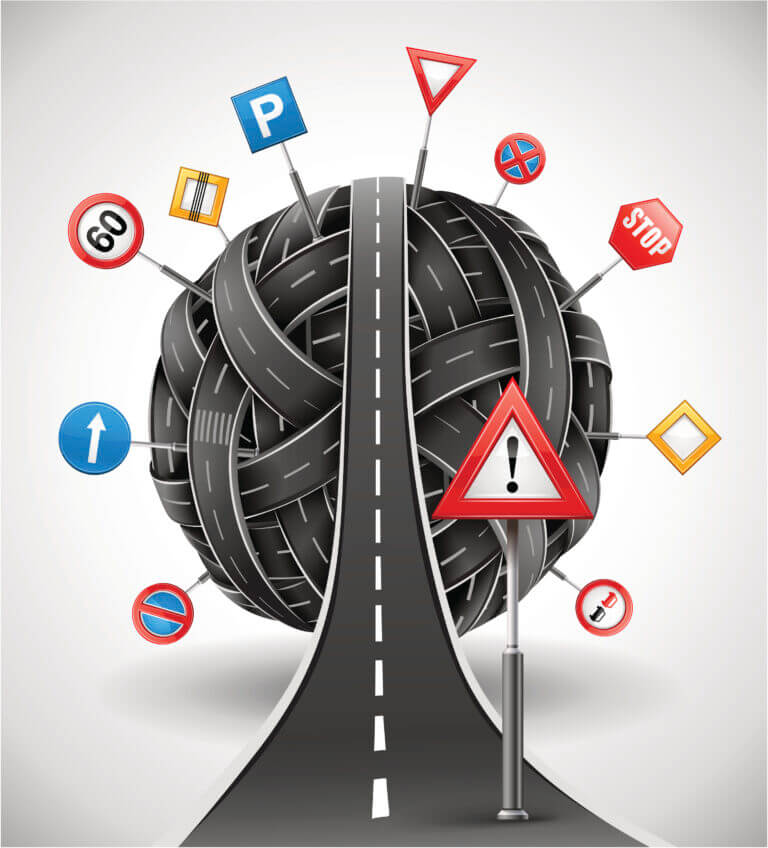In South Africa, where vehicle theft remains a persistent worry, car owners constantly seek security measures. Car tracking devices have emerged as powerful allies, offering invaluable peace of mind and a potential lifeline in the unfortunate event of a stolen vehicle. But a recent murmur has stirred unease: can car tracking be blocked?
Fear not, road warriors! This blog delves into the technical realities and legal landscape of car tracking in South Africa, equipping you with the knowledge to navigate this crucial aspect of vehicle security. We’ll also address the “blacklisting” concerns associated with unpaid car tracking fees, ensuring you make informed decisions for your car’s protection and your credit score.
Beyond Location: Unleashing the Power of Car Tracking
Car tracking goes far beyond simply pinpointing your stolen vehicle’s location on a map. These modern devices pack a punch of features that enhance security, driving habits, and overall vehicle health, making them the quintessential guardian angels of the road. Here are some of their superpowers:
Unveiling the Power Beyond Location: Your Guide to Car Tracking in South Africa
In South Africa, where the shadow of vehicle theft looms large, car owners crave security measures that offer solace and vigilance. While locks and alarms provide a baseline, car tracking devices have emerged as formidable guardians, evolving far beyond simple location pinpoints on a map. They are multifaceted heroes, wielding a range of superpowers that protect your car, empower you as a driver, and even bolster your financial well-being. Let’s delve into the five pillars of car tracking prowess:
1. Geofence Guardians: Sentinels of Your Domain
Imagine invisible fences, not of wood and wire, but of digital precision. These are geofences, customizable virtual boundaries you can set around your home, office, or even your child’s school. With a car tracking system equipped with geofence alerts, your phone becomes a vigilant sentinel. The moment your car crosses these boundaries, authorized or not, you receive an immediate notification, a crucial heads-up that could be the difference between catching unauthorized movement in its tracks and helplessly watching your car disappear. Whether it’s a teenager borrowing your car for a late-night escapade or a potential theft attempt, geofence guardians grant you the precious time and information needed to react and intervene.
2. Route Replay: Learning from Every Mile
Ever wondered if that shortcut you braved on a whim actually saved you time? Route replay unveils the behind-the-scenes drama of your driving history. It meticulously dissects your past trips, allowing you to analyse patterns, identify areas for improvement, and even pinpoint moments of potentially risky behaviour. This self-awareness is a transformative tool. Imagine seeing how that aggressive lane change nearly caused an accident or discovering how a more mindful approach to traffic lights could shave minutes off your daily commute. Route replay isn’t just about retracing your steps; it’s about learning from them, evolving your driving habits, and ultimately steering yourself towards safer, more efficient journeys.
3. Remote Immobilization: Taking Control in Your Darkest Hour
The chilling scenario of your car being stolen plays out in our nightmares. But with remote immobilization, you have a digital shield at your fingertips. This feature transforms your phone into a beacon of hope, granting you the ability to disable the engine with a single click. Imagine the potential impact: a thief joyriding your car gets grounded in their tracks, giving authorities a better chance of recovery and minimizing damage. Beyond stolen vehicles, remote immobilization can offer peace of mind even in everyday situations. Did you accidentally leave your child or pet inside a locked car on a scorching day? This technology could potentially be their lifeline, allowing you to remotely unlock the vehicle and ensure their safety.
4. Your Digital Coach: Driving Smarter, Not Harder
Ever wished for a personal driving instructor who could instantly critique your every maneuver? Car tracking systems with driving habit insights are the closest thing yet. They analyse your every acceleration, brake, and turn, providing personalized feedback on your habits. Did you exceed the speed limit on that familiar stretch of road? Did you slam on the brakes a little too harshly at that yellow light? This real-time feedback loop empowers you to adjust your behaviour, identify areas for improvement, and ultimately become a safer, more responsible driver. Imagine the potential rewards: lower insurance rates, a lighter environmental footprint, and the satisfaction of knowing you’re navigating the roads with greater awareness and skill.
5. Stay Ahead of the Curve: Timely Maintenance Reminders, Worry-Free Drives
No more frantic rummaging through service records or forgetting crucial maintenance deadlines. Car tracking systems become your personal mechanic’s assistant, sending timely reminders based on your vehicle’s mileage and service history. These proactive notifications ensure you never miss an oil change, tire rotation, or any other essential maintenance task. The benefits are twofold: optimal performance for your car, translating to smoother rides and potentially preventing costly breakdowns, and peace of mind for you, knowing your vehicle is always running at its best.
So, the next time you consider car tracking, remember that it’s far more than a simple locator. It’s a multifaceted guardian angel, watching over your car, empowering you to be a smarter driver, and offering the invaluable assurance that your precious ride is always looked after, both near and far. Choose your tracking system wisely, unlock these superpowers, and experience the transformative power of a car that’s not just your mode of transport, but a trusted companion on your journey.
The Legality Lowdown: Tracking the Truth
Now, let’s address the elephant in the room: is car tracking legal in South Africa? The answer is a resounding yes! However, like any technology, its use is subject to certain regulations and ethical considerations. Here’s the legal landscape in a nutshell:
- Consent: Installing a tracker on someone else’s vehicle without their knowledge or consent is illegal. Consent can be explicit (written agreement) or implied (awareness and acceptance of the tracker’s existence).
- Privacy: The information collected by trackers, such as location data and driving habits, is considered personal information and must be handled responsibly. Sharing this information with third parties requires the consent of the car owner or a legitimate reason.
- Data Protection: Tracker companies must comply with the Protection of Personal Information Act (POPIA), which regulates the collection, storage, and use of personal data.
Ultimately, responsible and ethical use of car tracking aligns with legal requirements and protects individual privacy.
MythBusters: Demystifying Tracking Blockers
Now, back to the initial question: can car tracking be blocked? While sophisticated criminals might employ devices known as signal jammers in rare cases, the effectiveness and practicality of such tactics are often exaggerated.
Here’s why tracking blockers face an uphill battle:
1. A Symphony of Signals: Outsmarting the One-Trick Pony
Modern car tracking systems are masters of adaptability, relying not just on one, but a two-pronged attack of location-finding technology. They utilize both GPS satellites and cellular networks to pinpoint your car’s position. This means that even if a jammer manages to silence the GPS signal, the cellular network will still be singing loud and clear, relaying your vehicle’s location directly to the tracking company and authorities. It’s like trying to silence a choir by plugging your ears; the music still reaches everyone else.
2. The Ever-Evolving Hydra: Tracker Companies Stay Ahead of the Game
Just like superheroes constantly face upgraded villains, car tracking companies are locked in a continuous battle with jammer technology. Think of it as an evolutionary arms race. As jammers become more sophisticated, tracker companies respond with even more advanced signal encryption and tracking algorithms. By the time a jammer gains any traction, it’s usually already obsolete, a relic of a bygone technological era.
3. Limited Range: A Short-Lived Feat of Deception
Imagine a stage magician pulling off an impressive vanishing act, only for the rabbit to reappear the moment they step off the stage. That’s essentially what happens with jamming devices. Their range is typically limited, meaning they only work effectively within a specific radius of the jammer itself. Once your car is moved beyond that zone, the tracking signal resumes its normal operation, rendering the jammer’s magic trick a fleeting illusion.
4. The Law Steps In: A Heavy Price for a Quick Getaway
Even if you were somehow able to overcome the technical hurdles, using a jammer in South Africa carries a hefty legal price tag. Possessing or using these devices is illegal, with hefty fines and potential imprisonment awaiting those who attempt to play foul. So, not only is it ineffective, but trying to jam your car’s tracking system could land you in serious trouble.
Therefore, the myth of car tracking vulnerability to jammers in South Africa is largely just that: a myth. Modern technology, proactive companies, and the law itself all combine to create a robust shield against such attempts. So, rest assured, your car is likely far safer than internet rumors might suggest, thanks to the advanced arsenal of features offered by reliable car tracking systems.
I hope this expanded version effectively debunks the jammer myth and provides a more nuanced understanding of the security landscape surrounding car tracking in South Africa. Remember, knowledge is power, and when it comes to your prized vehicle, choosing the right tracking system and understanding its capabilities are crucial steps towards ensuring its safety and your peace of mind.
Therefore, while the possibility of signal jamming exists, it remains a relatively rare and often ineffective tactic employed by sophisticated criminal groups.



